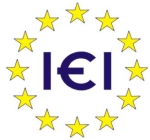E-commerce as a form of economic relationships of entrepreneurship subjects in the network economy
Abstract
Introduction. In the context of the formation of the information society and the use of ICT, the functioning of the economy is largely provided by the global Internet network, and business transactions become electronic. There is the formation of the so-called "network economy", and as a result of network economic relations, leads to the emergence of new forms of sales of goods – e-commerce, which begins to displace traditional trade. There is a formation of a new form of trade and economic relations of economic entities - e-commerce.
Aim and tasks. The article deals with the role and functions of e-commerce as a new form of economic relations of economic entities in the conditions of formation and development of a network economy.
Research results. As a result of the study, it has been determined that, changing the entire system of economic relations between business entities, e-commerce plays a stimulating role: it increases the innovation of national economies, since such commerce is carried out at the expense of the comprehensive application of ICT; expands the scope of traditional international trade, and attracts more and more consumers; contributes to the development of a new form of economic relations – the economy of general consumption, which has a significant positive external effect for society.
In Ukraine, the e-commerce market is still in the formation stage, showing high growth rates. At the same time, an imperfect legal framework for such a form of economic ties is an obstacle to its further development. Experience in developed countries shows that the economic and social impact of e-commerce development can only be achieved if the competitive and institutional environment is favorable.
Conclusions. Influence of information and communication technologies on global changes in the forms of economic relations is reflected in the processes of informatization and digitalization of all spheres of national economies, including trade and economic relations. There is a new form of trade and economic relations of business entities - the market of e-commerce. This kind of commerce becomes possible under the conditions of functioning of the so-called "network economy", within which the commercial activity is carried out with the use of the global information network - the Internet.
Keywords:
Information and communication technologies, e-commerce market, e-commerce, Internet, network economy, shrinking economy, trade and economic activity.References
2. Yudin, O. M. & Makarova, M. V. & Lavreniuk, R. M. (2011). E-commerce systems: creation, advancement and development. Poltava: RVV PUET. [in Ukrainian].
3. Maksymova, T. S. & Sorochan, D. V. (2010). E-commerce use by retailers. Torhivlia i rynok Ukrainy, 29, 273–279. [in Ukrainian].
4. Khovrak, I. V. (2013). E-Commerce in Ukraine: Advantages and Disadvantages. Ekonomika. Finansy. Pravo. (4), 16-20. [in Ukrainian].
5. Lebedenko, M. S. (2014). Basic concepts and models of e-business Efektyvna ekonomika, 12. Retrieved from: http://www.economy.nayka.com.ua/?op=1&z=3836 [in Ukrainian]
6. Melnychuk, O. S. (2015). The hourly stand is especially concerned with the development of electronic commerce in the structures of the national economy. Hlobalni ta natsionalni problemy ekonomiky. (4), 217-221 [in Ukrainian].
7. Summer, A. & Dunkan, Gr. (1999). E-Commerce. New York: NYH Publishing.
8. Zwass, V. (1996). Electronic Commerce: Structures and Issues. International Journal of Electronic Commerce. 1 (1), 3–23. DOI: 10.1080/10864415.1996.11518273.
9. Zabolotskikh, L.Yu. (2016). Internet Commerce as the Direction of Trade Policy of the Company. Russian Journal of Retail Management, 3(3), 205–222. doi: 10.18334/tezh.3.3.36811 [in Russian].
10. Ershov, S.F. (2012). Innovative development management of e-commerce enterprise on the basis of information system development. Creative economy, 11, 65–69 [in Russian].
11. Sidorova, O.V. (2011). State control of electronic commerce: foreign practice. Creative economy, 6, 108–114 [in Russian].
12. Status Report on European Telework: Telework. (1997). European Comissin Report.
13. Pilik, M., Juřičková, E., & Kwarteng, M. A. (2017). On-line shopping behaviour in the Czech Republicunder the digital transformation of economy. Economic Annals-XXI, 165 (5-6), 119-123.
14. Neboha, T.V. (2018). The economy of joint participation as a form of resource sharing. Materialy I Mizhnarodnoi naukovo-praktychnoi konferentsii "Innovatsii i suchasni biznes-tekhnolohii v ekonomitsi ta upravlinni (soiuz nauky i praktyky)" (pp. 47-50). Sumy: SumDPU imeni A. S. Makarenka [in Ukrainian].
15. SEATTLE- (BUSINESS WIRE) (2018). Amazon.com, Inc. (NASDAQ: AMZN). Retrived from: http://phx.corporate-ir.net/phoenix.zhtml?c=176060&p=irol-newsArticle&ID=2360353.
16. GfK Group (2018). Retrived from: https://www.gfk.com.
17. Pro elektronnu komertsiiu: Zakon Ukrainy 03.09.2015 № 675-VIII. Retrived from: http://zakon3.rada.gov.ua/laws/show/675-19 [in Ukrainian].
18. Elektronna komertsiia v Ukraini. Statystyka za 2015–2016 rokyhttp Retrived from: http://nuigde.biz/uk/blog/elektronnaya-kommerciya-v-ukraine-statistika-za‑2015-2016-goda.html [in Ukrainian].
19. EVO (2018). Retrived from: https://evo.company/ [in Russian].

This work is licensed under a Creative Commons Attribution-NonCommercial 4.0 International License.
If the article is accepted for publication in the journal «Economics. Ecology. Socium» the author must sign an agreementon transfer of copyright. The agreement is sent to the postal (original) or e-mail address (scanned copy) of the journal editions.






















